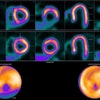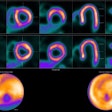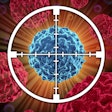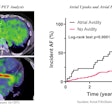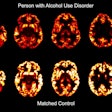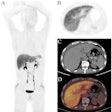In a study that included “real-world data from an entire country,” researchers in Denmark report that PSMA-PET/CT improves survival in men with recurrent prostate cancer treated with salvage radiotherapy (sRT).
In data obtained from routine clinical practice from all patients treated with sRT in the country from 2015 through 2023, pretreatment PSMA-PET/CT was associated with improved overall survival, according to the group.
“Patients who underwent PSMA-PET/CT before sRT treatment demonstrated greater one-, two-, and five-year survival rates than those who did not,” noted lead author Anna Mogensen, a doctoral student at Aalborg University Hospital in Aalborg. The study was published June 12 in the Journal of Nuclear Medicine.
International guidelines recommend sRT as a curative treatment for men with biochemically recurrent prostate cancer after radical prostatectomy. Prostate-specific membrane antigen (PSMA)-PET/CT is a highly accurate method for localizing recurrent disease, which can improve treatment strategies, the authors explained.
Yet few studies have investigated the impact of pre-sRT PSMA-PET/CT on patient-relevant outcomes, namely recurrence-free and overall survival. Moreover, no comparisons exist of overall survival between patients who undergo PSMA-PET/CT before the procedure and those who do not.
To bridge the knowledge gap, the researchers gathered clinical data from national medical registries, which include detailed descriptions for every Danish citizen on prostate cancer characteristics, imaging, treatment, outcome, and covariates. They identified 844 patients treated with sRT during the study period, of whom 308 (36.5%) underwent pretreatment PSMA-PET/CT.
Gallium-68 PSMA-11 radiotracer was introduced in Denmark in 2015 and was used for 55% of the study population, whereas F-18 PSMA-1007 was introduced in only a few centers in 2020 and was used for 45% of the study population, the researchers noted.
 A visual abstract of the study.Journal of Nuclear Medicine
A visual abstract of the study.Journal of Nuclear Medicine
The group compared overall survival up to five years after completion of sRT, while biochemical recurrence-free survival (BRFS) was included as a secondary outcome. Only patients with a prostate-specific antigen value of 0.2-1 ng/mL were included, the researchers noted.
According to the analysis, patients who underwent PSMA-PET/CT before sRT had greater overall survival than those who did not.
Overall survival with vs. without PSMA-PET/CT before sRT | ||
Overall survival | With PSMA-PET/CT | Without PSMA-PET/CT |
1 year | 100% | 99% |
2 years | 99.5% | 97.8% |
5 years | 98.1% | 93.8% |
In addition, comparatively, the three-year BRFS rate was 74.9% for PSMA-PET/CT patients and 69.4% for non-PSMA-PET/CT patients.
“PSMA-PET/CT use before sRT was associated with improved overall survival and BRFS,” the group wrote.
Ultimately, the study shows that patients with biochemically recurrent prostate cancer -- where prostate-specific antigen levels rise above 0.2 ng/mL -- who are treated with sRT have high overall survival, the researchers noted.
Strengths of the design of the study included the use of high-quality, nationwide data with nearly complete follow-up, which resulted in a large cohort, they added. Also, selection bias was minimized by the population-based design in Denmark, which has free healthcare access and thereby equal patient access to PSMA-PET/CT.
“Our findings highlight the value of PSMA-PET/CT in the pre-sRT selection process to select patients likely to benefit from this treatment,” the group concluded.
The full study is available here.



